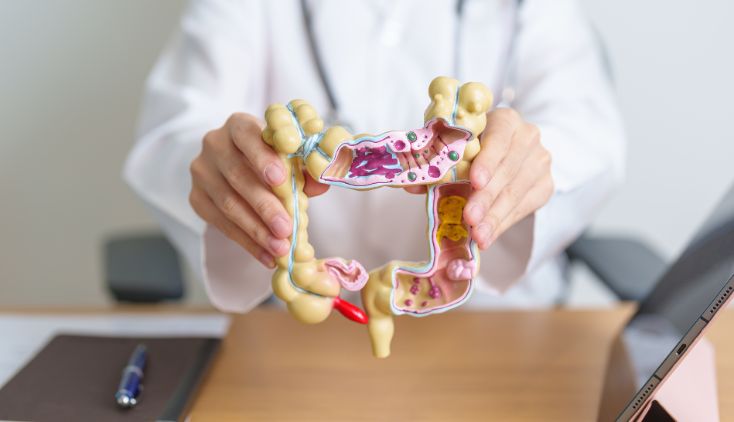Knowing What to Watch For
Ulcerative colitis (UC) is a chronic condition that causes inflammation and sores (ulcers) in the lining of the large intestine, most commonly in the colon and rectum. Recognizing the early signs of ulcerative colitis is crucial for early diagnosis and effective treatment. Here are some of the most common symptoms that people may notice in the early stages.
1. Frequent Diarrhea
One of the earliest and most common symptoms of ulcerative colitis is frequent, urgent diarrhea. This occurs because the inflammation in the colon interferes with water absorption, resulting in loose or watery stools. The diarrhea may occur several times a day, sometimes even disrupting sleep.
Unlike occasional diarrhea caused by diet or infection, UC-related diarrhea tends to persist and may not improve without medical intervention. It can also be accompanied by a sudden urgency to use the bathroom, which can become quite disruptive to daily life.
2. Blood in the Stool
Another significant early sign of ulcerative colitis is the presence of blood in the stool. This happens because the lining of the colon becomes inflamed and can develop open sores, which bleed. The blood may appear bright red, or the stool may be darker due to partially digested blood.
This symptom should never be ignored, even if it occurs only occasionally. Blood in the stool can also be a sign of other conditions, such as hemorrhoids or colorectal cancer, so it’s important to see a doctor for evaluation.
3. Abdominal Pain and Cramping
Inflammation in the colon can cause persistent abdominal discomfort. People with early ulcerative colitis often describe cramping or aching pains, especially in the lower left side of the abdomen, where the colon is often most affected.
This pain may be relieved temporarily after a bowel movement, but it usually returns and can become more intense over time. The cramping may also be associated with bloating and a feeling of fullness.
4. Fatigue
Chronic inflammation and ongoing symptoms like diarrhea and blood loss can lead to fatigue. People with ulcerative colitis may feel unusually tired even after a full night’s sleep. This fatigue is not just physical—it can also affect mental focus and mood.
Fatigue in UC can be caused by multiple factors, including anemia (due to blood loss), poor nutrient absorption and the body’s constant effort to fight inflammation.
5. Unexplained Weight Loss
In the early stages of ulcerative colitis, some individuals may begin to lose weight without trying. This happens because the inflammation interferes with the body’s ability to absorb nutrients, and because people may eat less due to discomfort or fear of triggering symptoms.
Over time, significant weight loss can lead to malnutrition, making it even more important to seek medical help early on.
6. Urgency to Have a Bowel Movement
Many people with ulcerative colitis experience a sudden and intense need to have a bowel movement. This urgency can come with little warning and may lead to accidents if a bathroom isn’t immediately available.
In early UC, urgency may be one of the first noticeable changes in bowel habits, even before the onset of more dramatic symptoms like bloody stools.
7. Feeling Like You Still Need to Go (Tenesmus)
Tenesmus is a sensation of incomplete evacuation after a bowel movement. People with ulcerative colitis often feel like they still need to use the bathroom, even if their bowels are empty. This feeling is caused by irritation and inflammation in the rectum.
It can be frustrating and uncomfortable and may contribute to more frequent bathroom visits.
8. Fever or Mild Flu-Like Symptoms
Although not as common, low-grade fever and general flu-like symptoms can appear in the early stages. These symptoms are the result of inflammation and the body’s immune response. They usually accompany other signs such as fatigue, cramping and diarrhea.
Treatment Options for Ulcerative Colitis
- Anti-inflammatory medications (mesalamine, corticosteroids).
- Immune system suppressors (azathioprine, biologics like infliximab).
- Dietary changes (avoiding trigger foods, working with a dietitian).
- Surgery (colectomy in severe or unresponsive cases).
- Regular monitoring and colonoscopies to manage long-term health.
Catching the early signs of ulcerative colitis can make a significant difference in managing the disease and improving quality of life. Don’t hesitate to seek medical advice if you notice these warning signs.
